B.Des. Product Design
Programme Overview
The B.Des Product Design programme at MIT-WPU equips you with the necessary skill sets and practical exposure to design innovative, efficient, and relevant products. This programme is ideal for future industrial leaders who aim to integrate technology and zero-waste practices to create human-centred product designs. The curriculum highlights the role of design in addressing social, cultural, and environmental issues, encouraging you to design with empathy and responsibility. One of the programme's standout features is its user-centric design approach, which includes extensive independent user studies and design projects aimed at creating products for diverse user categories. This ensures that your designs are not only functional but also emotionally engaging.
The B.Des. programme places a strong emphasis on sustainability, encouraging you to incorporate eco-friendly materials and ethical production methods into your design process. You will be equipped to navigate the complexities of the global marketplace while creating innovative yet sustainable products. This prepares you for a wide range of career paths in product design, equipping you with the skills of a designer and a creative professional capable of conceptualising abstract ideas to reimagine your engagement with the world.
Major Tracks
- Product Semantics
- Ergonomics
- Anthropometry
- Sustainable Product Design
- Product Development
Duration & Fees
Duration
4 Years
Applications Open for 2026
Fee Per Year
₹ 4,25,000
Scholarship
| Scholarship for AY 2026-27 | MIT-WPU CET CBT Score | UCEED Rank |
|---|---|---|
|
Dr. Vishwanath Karad Scholarship |
93 & Above |
Upto 800 All India Rank |
|
MIT-WPU Scholarship I |
91 & Above |
801-2000 All India Rank |
|
MIT-WPU Scholarship II |
90 & Above |
2001 to 2500 All India Rank |
Note: Scholarships will be awarded based on the MIT-WPU CET 2026 Computer-Based Test (CBT) score or UCEED 2026 Score.
Terms & Conditions Apply:
- All Scholarships are awarded on a First Come First Serve basis. All Scholarships are awarded as fee adjustments.
- To continue the scholarship for the entire duration of the programme, a minimum level of the academic score has to be maintained at an 8 CGPA across all semesters, attendance is to be maintained at a minimum of 80 percent and there should be no disciplinary action against the student.
For more detailed information visit our website: https://mitwpu.edu.in/scholarships
Eligibility
Minimum 50% aggregate marks in Class 10+2/ HSC or its equivalent examination in any stream with English subject (Minimum 45% aggregate marks for candidates belonging to the Reserved Category from Maharashtra State).
Selection Process
Admissions will be based purely on the merit of MIT-WPU CET 2026/ UCEED 2026/ NIFT 2026/ NATA 2026/ NID 2026 score, along with Personal Interaction (PI) and Portfolio Review, as per the prescribed schedule.
A valid score in UCEED/ NATA/ NIFT/ NID may also be considered for the selection process; in such cases, the candidate must additionally appear for the MIT-WPU CET Personal Interaction (PI), Portfolio Review, and Drawing Test as per the schedule
Programme Highlights
- Futuristic Design & Technology Incubation : Practice the most recent design practices like AI, bio-design or computation and leverage can´t-be-found-elsewhere capabilities like digital manufacturing.
- Theory to Practice : Do useful products, but also beautiful and aesthetically pleasing Exposure and Networking Certainly, exposure to your field of interest through internships, live projects and networking greatly increases your chances of creating a network in product design.
- Multidisciplinary Learning : The combination of design principles and human factors, material science, and sustainability in one provides students with a rounded understanding of product design
- Practice-Focused Experimental Learning : To learn more about developing your technical as well as soft skills, get involved in high-impact projects and work with industry partners.
- Extracurriculars : Build leadership, teamwork, and group collaboration by being involved in extracurriculars.
- Global Sustainability and Innovation : Learn why functional yet sustainable, socially responsible product development matters, and how it can contribute to addressing worldwide environmental and social challenges.
- Strong Industry-Academia Linkages : During the programme, get internships and placements with top design companies and organisations offering product design services.
- Corporate and Alumni Support : A support community of stalwarts from industry and alumni to keep you on track and help you navigate your studies and careers.
- Design Incubation for Startups : MIT-WPU Pune also emphasises entrepreneurship and incubates startups through its Technology Business Incubator (TBI), offering expertise, resources, and connections for budding entrepreneurs to launch design-related ventures.
Programme Structure
| Semester | Course Type | Course Name/Course Title | Total Credits |
|---|---|---|---|
|
I |
University Core |
Effective Communication |
1 |
|
I |
University Core |
Critical Thinking |
1 |
|
I |
University Core |
Environment and Sustainability |
1 |
|
I |
University Core |
Foundations of Peace |
2 |
|
I |
University Core |
Yoga - I |
1 |
|
I |
University Core |
SLDP |
1 |
|
I |
Programme Foundation |
Visualisation and Design Fundamentals |
4 |
|
I |
Programme Foundation |
Makers and Tinkers Lab |
3 |
|
I |
Programme Foundation |
Digital Tools |
3 |
|
I |
Programme Foundation |
Introduction to Research, Thinking and Methods |
3 |
|
I |
Programme Foundation |
Crafting Creativity and Impact |
3 |
|
TOTAL |
23 |
| Semester | Course Type | Course Name/Course Title | Total Credits |
|---|---|---|---|
|
II |
University Core |
Advanced Excel |
1 |
|
II |
University Core |
Financial Literacy |
1 |
|
II |
University Core |
Yoga - II |
1 |
|
II |
University Core |
Co-creation |
1 |
|
II |
University Core |
Indian Constitution |
1 |
|
II |
University Core |
IKS(General) |
2 |
|
II |
University Core |
Sports |
1 |
|
II |
Programme Foundation |
Product Sketching and Drawing |
3 |
|
II |
Programme Foundation |
Elements and Principles of Form |
3 |
|
II |
Programme Foundation |
Materials and Processes |
3 |
|
II |
Programme Foundation |
Simple Product Design |
4 |
|
Total |
21 |
||
| Semester | Course Type | Course Name/Course Title | Total Credits |
|---|---|---|---|
|
III |
University Core |
Research Innovation Design Entrepreneurship (RIDE) |
1 |
|
III |
University Core |
Spiritual & Cultural Heritage; Indian Experience |
2 |
|
III |
University Electives |
UE - I |
3 |
|
III |
University Electives |
UE-II |
3 |
|
III |
Programme Major |
Product Semantics |
3 |
|
III |
Programme Major |
Complex Form Studies |
3 |
|
III |
Programme Major |
Human Factors and Ergonomics |
2 |
|
III |
Programme Major |
Product and Technology |
2 |
|
III |
Programme Electives |
Physical and Digital Visualisation |
2 |
|
III |
Programme Electives |
Nature Inspired Design |
2 |
|
Total |
23 |
||
| Semester | Course Type | Course Name/Course Title | Total Credits |
|---|---|---|---|
|
IV |
University Electives |
UE-III |
3 |
|
IV |
University Core |
Rural Immersion |
1 |
|
IV |
University Core |
Life Transformation Skills |
1 |
|
IV |
Programme Foundation |
Human Centered Product Design |
3 |
|
IV |
Programme Major |
Product Experience Design |
2 |
|
IV |
Programme Major |
Design for Sustainable Products |
2 |
|
IV |
Programme Major |
Product Design Research and IPR |
2 |
|
IV |
Programme Major |
Technically Complex Product |
4 |
|
IV |
Programme Electives |
Origami and Kirigami for Design |
2 |
|
IV |
Programme Electives |
Ceramic Design |
2 |
|
Total |
22 |
||
| Semester | Course Type | Course Name/Course Title | Total Credits |
|---|---|---|---|
|
V |
University Core |
Managing Conflicts Peacefully: Tools and Techniques |
2 |
|
V |
Programme Foundation |
IKS - PD |
2 |
|
V |
Programme Major |
Product Design Innovation Project |
3 |
|
V |
Programme Major |
System Thinking and Product Lifecycle |
3 |
|
V |
Programme Major |
Healthcare Innovation |
2 |
|
V |
Programme Major |
Inclusive Product Design |
2 |
|
V |
Programme Major |
Immersive Medias in Product Design |
3 |
|
V |
Programme Electives |
Toy and Game Design |
2 |
|
V |
Programme Electives |
Parametricism in Design |
2 |
|
Total |
21 |
||
| Semester | Course Type | Course Name/Course Title | Total Credits |
|---|---|---|---|
|
VI |
University Core |
National Academic Immersion |
2 |
|
VI |
Programme Major |
Product Design Strategy and Marketing |
3 |
|
VI |
Programme Major |
Product Design Futures |
3 |
|
VI |
Programme Major |
Design Management and Professional Practice |
2 |
|
VI |
Programme Major |
Craft and Culture |
2 |
|
VI |
Programme Capstone Project/ Problem-Based Learning/ Seminar and Internships |
Product Service Design |
4 |
|
VI |
Programme Electives |
Advanced Visualization Techniques |
2 |
|
VI |
Programme Electives |
Bamboo Craft and Structure Design |
2 |
|
Total |
20 |
||
| Semester | Course Type | Course Name/Course Title | Total Credits |
|---|---|---|---|
|
VII |
Programme Major |
Designing for Emerging Product Technologies |
1 |
|
VII |
Programme Major |
Product Design Strategy and entrepreneurship |
1 |
|
VII |
Programme Major |
Advanced Product Testing and Lifecycle Management |
1 |
|
VII |
Programme Major |
Designing for Immersive Product Experiences |
1 |
|
VII |
Programme Major |
Product Design Portfolio and Presentation |
1 |
|
VII |
Programme Capstone Project/ Problem-Based Learning/ Seminar and Internships |
Dissertation Project - Product Design |
8 |
|
VII |
Programme Capstone Project/ Problem-Based Learning/ Seminar and Internships |
Prodesign |
2 |
|
Total |
15 |
||
| Semester | Course Type | Course Name/Course Title | Total Credits |
|---|---|---|---|
|
VIII |
Programme Capstone Project/ Problem-Based Learning/ Seminar and Internships |
Industry Internship - Product Design |
18 |
|
Total |
15 |
||
Career Prospects
Industrial Designer
Product Designer
Product Experience Designer
Furniture Designer
Packaging Designer
Automotive Designer
Concept Artist
3D Modeler
Sustainability Designer
Prototype Developer
Space Design Consultant
Smart Home Product Designer
Design Strategist
Material Researcher
Design Strategist
Material Researcher
Freelance/Independent Designer
Entrepreneur
Programme Outcomes
- Use user-centred design principles and techniques throughout the product creation process, to describe how users download, purchase, or use your products on multiple devices.
- Build your design thinking empathy skills by requesting what users need and the behavioural factors shaping the design process.
- Conduct strategic research to shape product designs for optimal usability.
- Prototype interactions and run usability tests to validate and enhance product experience;
- Collaborate with cross-functional teams to develop holistic product designs that balance business requirements, technical constraints and user needs.
- Apply principles into your designs and try to benefit as many users as you can.
- Communicate design concepts and research findings to stakeholders and team members.
- Show critical evaluation skills, and make design decisions informed by user feedback and industry best practices.
- Follow professional ethics, uphold lifelong learning and adapt to design community innovations.
Placements & Recruiters
100% Placement Assistance
Top Recruiters
FAQs
The B.Des. The (Product Design) programme from MIT-WPU is an ideal blend of theory and practicality and prepares you for the real challenges of the Product design world.
Through the resources that come from industry partnerships — students get access to state-of-the-art labs, 3D printing facilities and the latest design software.
The curriculum also embeds sustainability, technology and user-centred design so that students are equipped to deal with some of the challenges facing the industry both now and in years to come.
MIT-WPU’s B.Des. The (Product Design) programme combines creativity, innovation and technology to enable you to design products that are easy to use and have a positive impact on people's lives. You will receive echoed industry exposure via the projects or internships. With a world-class faculty and an emphasis on sustainable and contemporary design methodologies, you’ll be equipped to influence the future of product design.
The B.Pharm (Lateral Entry) programme takes you through the following key subjects to groom you for advanced roles:
- How to Present a Design : Skills to promote your ideas.
- Design Manufacturing : Understand how to design products for massive production.
- Eco-design : Concentrating on sustainable design and eco-friendly design practices.
- User Research and Testing : Conduct user research and usability testing
- Product Engineering and Prototyping : Create functional models and iteratively improve designs.
- Product Sketching and Visualisation : Learn sketching techniques to visualise your ideas.
- Design Thinking : Use creative problem-solving techniques to develop effective designs.


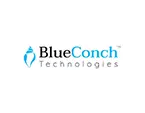
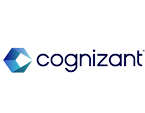
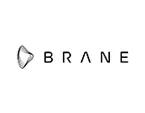
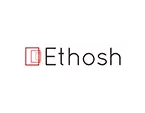


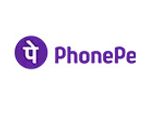


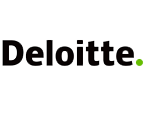





 admissions@mitwpu.edu.in
admissions@mitwpu.edu.in
